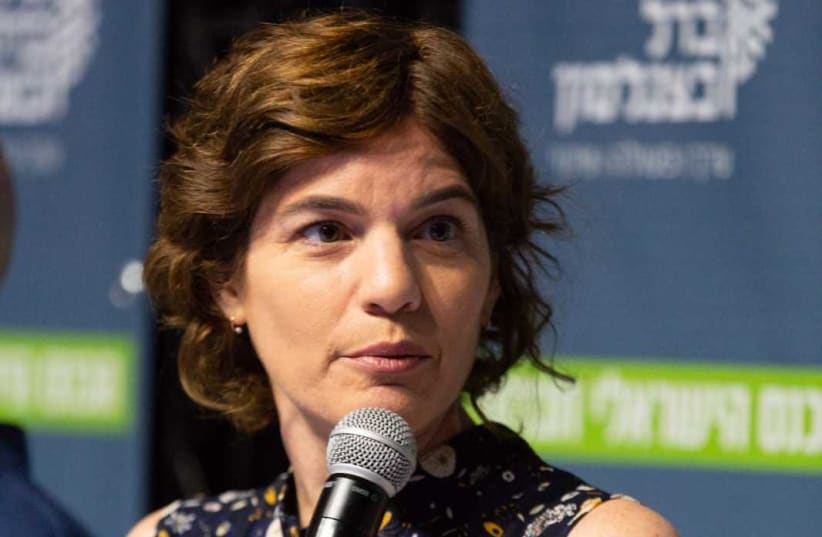Elections to lead the Meretz Party scheduled for Thursday night are expected to be extremely tight between current chair Tamar Zandberg and former party MK Nitzan Horowitz.
The vote is to be decided by Meretz’s 1,000-member convention, following a decisive vote earlier this month by the convention not to open up the vote to the party’s membership of 31,000.
That decision was seen as advantageous to Horowitz, who has significant support within the convention, although allies of Zandberg say that vote was not reflective of the level of support for either candidate.
Meretz MK Esawi Frej, who is backing Zandberg, told The Jerusalem Post that he was doing so because of her emphasis on turning Meretz into a specifically Jewish-Arab party that seeks to advance cooperation between the two population groups.
Frej said this approach, which Meretz has begun, is critical in preserving contact between the Jewish and Arab societies, and could also increase the party’s share of the vote.
The MK added that he was fearful Horowitz would unite Meretz with another party, possibly former prime minister Ehud Barak’s new party, which Frej said would ruin and possibly divide Meretz.
“I am supporting the natural candidate for me to support, Tamar Zandberg,” Frej said. “She is building a joint Jewish-Arab party, we have started on this path, and she is committed to this and to preserving the separation between us and other parties. I am not prepared to take a chance that Meretz comes under Nitzan’s [Horowitz] leadership, who has not denied the possibility he would unite with Barak.”
Frej said that Meretz received some 43,000 votes from Arab citizens in the April election, which had “opened the door to Jewish-Arab cooperation.”
“After 70 years of the existence of the state, the time has come to integrate Arab citizens into Israeli society,” Frej said. “Meretz is the only strand of hair that links these two societies. If we cut this strand, then there will be two societies in one state, which is very dangerous for us. Any attempt to wipe out Meretz, or to have it join with another party without protecting is character and values, will be regretted for generations.”
Frej said that flying the banner of Jewish-Arab cooperation could garner Meretz new voters, because the issue speaks to many Jews and Arabs who would come to the party once it starts talking seriously about the issue.
“Victory for Zandberg will strengthen Meretz and its values,” he warned. “Victory for Horowitz will put a question mark over the future of the party.”
MK Ilan Gilon, who is backing Horowitz, described him as a committed parliamentarian and an “exceptional legislator,” as well as being popular, well-liked and having favorable polling numbers.
“Meretz needs a campaign rooted in our values, ideologies, with clear statements, that doesn’t blur our public stances, and doesn’t hide our public actions and achievements,” he said. “We need to present our vision for what Israel should and could look like. We are a small party with great successes, and we need to highlight that as much as possible in the next election, so Israelis know that they are entrusting their vote on a team that wakes up every morning committed to serve them.”
Former Meretz MK Mossy Raz, who served during the last Knesset and who is, like Frej, backing Zandberg, said that the 1,000-member convention was equally divided between members with strong associations to the MKs and other senior party officials, and those who are more independent.
“The free members are the ones who will decide things Thursday night,” said Raz, although he said that the results would be very close.
Raz said that there was significant dissatisfaction with Zandberg and the campaign she ran for the April election, particularly with one of the campaign directors she used and with the focus of the campaign on her to the detriment of the party’s other Knesset candidates.
He said, however, that Horowitz’s run as an MK from 2013 to 2015 had not been good, noting that Horowitz had run as a candidate for Tel Aviv’s mayor shortly after becoming an MK.
Raz, also like Frej, said that the critical issue for Meretz was the goal of Jewish-Arab cooperation, which should be the focus of the election campaign for the party and which he said could bring in votes.
“The approach of myself, Esawi [Frej], and Tamar [Zandberg] is that Meretz needs to focus on Jewish-Arab cooperation in Israel and the occupied territories,” he said. “This could bring in new voters, Jewish and Arab, some who vote for Labor or some of the Arab parties, as well as both Arabs and Jews who do not generally vote.”
